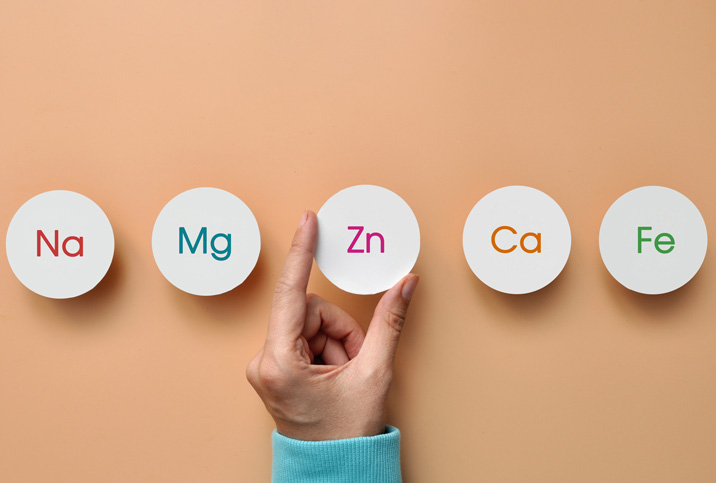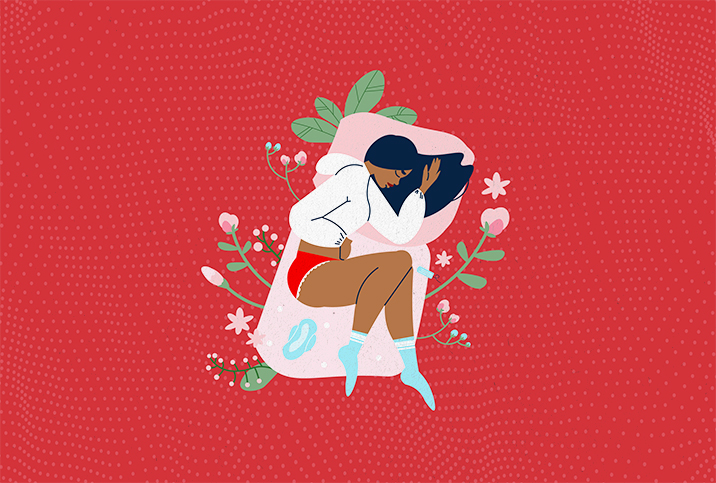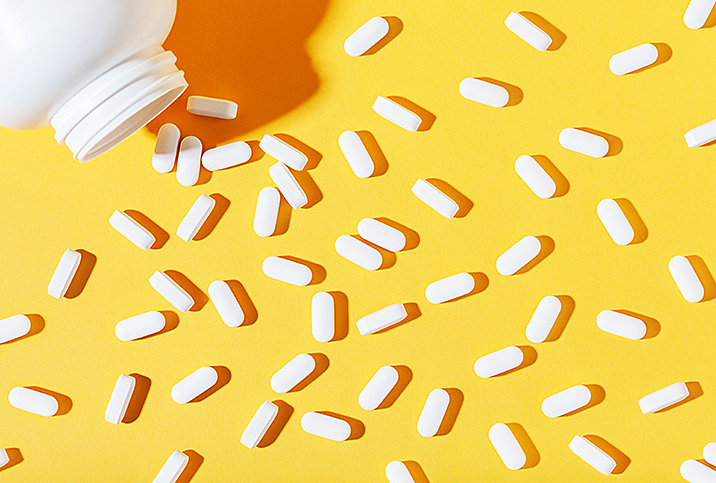Your Body Needs Metals—Here's How to Get Them

From childhood, we're told to consume requisite vitamins and minerals, from daily gummies to fortified milk and cereal. But under the umbrella of minerals, you may not realize, are metals—just not quite how you may picture them. While it's important to get enough metals, it's just as possible to get too many as it is to get too few, and both scenarios pose risks to your physical health.
These metals may not be precious in the way of gold and silver, but they're certainly precious to your body.
1. Magnesium
You might remember this metal from one of the few lessons you enjoyed in the chemistry lab at school: Your teacher lit a piece of magnesium strip, and it burned with a fiercely bright light while the class oohed and aahed.
Aside from putting on a great special effects show, this metal supports your muscles and nerve function, and plays a crucial role in your body's energy.
"Magnesium is the fourth most abundant mineral in the body and is found in the bone and soft tissues," said Mascha Davis, M.P.H., founder and registered dietitian nutritionist at Nomadista Nutrition, based in Culver City, California. "Magnesium plays an important role in many bodily functions, such as protein synthesis, blood pressure regulation, nerve and muscle function/contraction, normal heart rhythm and blood glucose control."
On a daily basis, women require 310 to 320 milligrams of magnesium, while men should get 200 to 240 mg. While not getting enough magnesium isn't always a major immediate problem, a lack of consumption can increase your risk of diabetes, high blood pressure, osteoporosis and heart disease.
On the flip side, getting too much magnesium from your food isn't a concern for your body. However, over-supplementing magnesium can cause unpleasant side effects, such as cramping and diarrhea.
"Long-term suboptimal intake of magnesium can lead to magnesium deficiency," said Brittany Poulson, M.D.A, a Utah-registered dietitian nutritionist and diabetes care and education specialist, and founder of yourchoicenutrition.com. "Mild to moderate deficiency can cause loss of appetite, nausea, vomiting, fatigue and weakness, while an extreme deficiency can cause numbness, tingling, muscle cramps, seizures, personality changes and an abnormal heart rhythm."
Magnesium supplements are typically combined with other components to be better absorbed by the body. You may then see eight different types of magnesium. Some are easier for your body to process than others.
"Small studies have found that magnesium in the aspartate, citrate, lactate and chloride forms is more fully absorbed and is better able to be used by the body than oxide and sulfate forms," Poulson said.
You can increase magnesium intake through foods such as legumes, which include black beans, soybeans and kidney beans; nuts, such as almonds, peanuts and cashews; as well as nut butter, pumpkin seeds, leafy greens, avocado and dark chocolate, Davis said.
2. Iron
Iron is an essential metal that aids your body in red cell production, which helps carry oxygen throughout the body. Men need 8.7 mg of iron per day while women require 14.8 mg per day until they hit menopause, at which point the dose decreases to the same level as men.
During pregnancy, iron intake should increase to 27 mg per day. According to Davis, if you're vegetarian, you should consider taking 32 mg per day because the body does not absorb iron from plant-based foods as well as from animal products.
For most people, getting too much iron from food isn't a danger, unless you have hemochromatosis, or iron overload disorder, a rare condition that causes the body to absorb too much iron from food. Too little iron can lead to complications such as anemia.
"Signs and symptoms of iron deficiency include upset stomach, weakness, fatigue, difficulty concentrating and remembering things, and [iron deficiency] can have a bad effect on your immune function, exercise or work performance, and body temperature regulation," Poulson explained.
"Iron-deficiency anemia affects more women than men," Davis said. "This is especially true for those who have heavy menstrual periods where substantial blood loss occurs. Pregnant women also are at a higher risk for iron deficiency because iron needs are increased during pregnancy to support the baby's development."
Over-supplementing iron can be dangerous. Even slight over-supplementation can lead to constipation, nausea or stomach pain, and it can be fatal in extreme cases.
"Excessive iron intake can cause digestive upset and internal bleeding," Davis added. "If iron toxicity is not treated, it can cause long-term and life-threatening complications, like liver and heart failure. This is why it's important to speak to a doctor to get the right dosage for you."
Most of the iron your body needs can come easily from foods, such as red meat, liver, kidney beans, chickpeas, nuts, dried fruits and fortified cereals. Women with heavy periods may need to eat more iron-rich foods during their cycle or supplement their diet if iron levels are too low.
3. Zinc
Zinc is important in keeping your body's immune system strong and plays a role in metabolic function. Women should take 8 mg of zinc per day, while men need 11 mg per day.
Zinc is known to play a role in wound healing, largely because a deficiency in zinc could slow the process; but whether supplementation speeds the same process is less clear. Zinc may also help with recovery from minor illnesses such as colds, though which route of administration is best is uncertain. Zinc is also associated with the senses of taste and smell; intranasal application of zinc may cause loss of these senses.
There's no serious risk of getting too much zinc from food, though over-supplementing can cause headaches, upset stomach and diarrhea, and lead to copper deficiency. Not getting enough zinc is rare, but if your zinc levels are too low, you can suffer hair loss, skin sores, weight problems, loss of appetite, and the inability or lessened ability to taste and smell food.
"Many foods contain zinc, and among the best sources are oysters, red meats and poultry," Poulson noted.
Other good dietary sources of zinc include beans, nuts, crab and lobster, whole grains, dairy products and fortified breakfast cereals.
4. Copper
Playing a vital role in your health, copper helps create energy for your body and helps make blood vessels and connective tissue. It can also activate genes and help keep your immune system and brain functioning well.
All adults typically need 900 micrograms of copper per day, while pregnant and breastfeeding adults may need an additional 100 to 400 micrograms per day, depending on discussions with their OB-GYN, which are crucial.
Note that too much copper can cause serious problems, such as abdominal pain, vomiting and liver damage. Few people experience toxicity from an excess of copper, though it's not impossible, especially with genetic disorders such as Wilson's disease. Not getting enough copper is more likely and can lead to exhaustion, high cholesterol, lightened skin patches, tissue disorders, brittle bones, loss of balance and a heightened risk of infection.
You can get copper naturally from beef liver, shellfish, nuts, seeds, chocolate, whole grains, fortified cereals, potatoes, tofu, avocados, mushrooms and chickpeas.
Your pedal to the metal
Your body needs metals to function, but like any vitamin or nutrient, a regulated amount each day is necessary so you don't get too much or not enough.
If you're worried about a possible depletion of metal in your body, talk to your medical physician, who will likely order a blood test to gauge your current levels and help decide if supplementation makes sense. Pregnant people and people with conditions that are linked to vitamin deficiencies should be particularly diligent in talking to a medical professional.


















